|

|
Thanks for the Feedback:
It’s impossible to overstate the extent to which role confusion exists, even in the most well-run organizations.
|
130 |
|

|
Thanks for the Feedback:
There are a number of advantages to understanding feedback through a systems lens… Systems thinking corrects for the skew of any single perspective.
|
136 |
|

|
Thanks for the Feedback:
We are less likely to make that leap from description to damnation if we see the conflict as a simple intersection, perhaps compounded by clashing roles, inside a larger system.
|
136 |
|
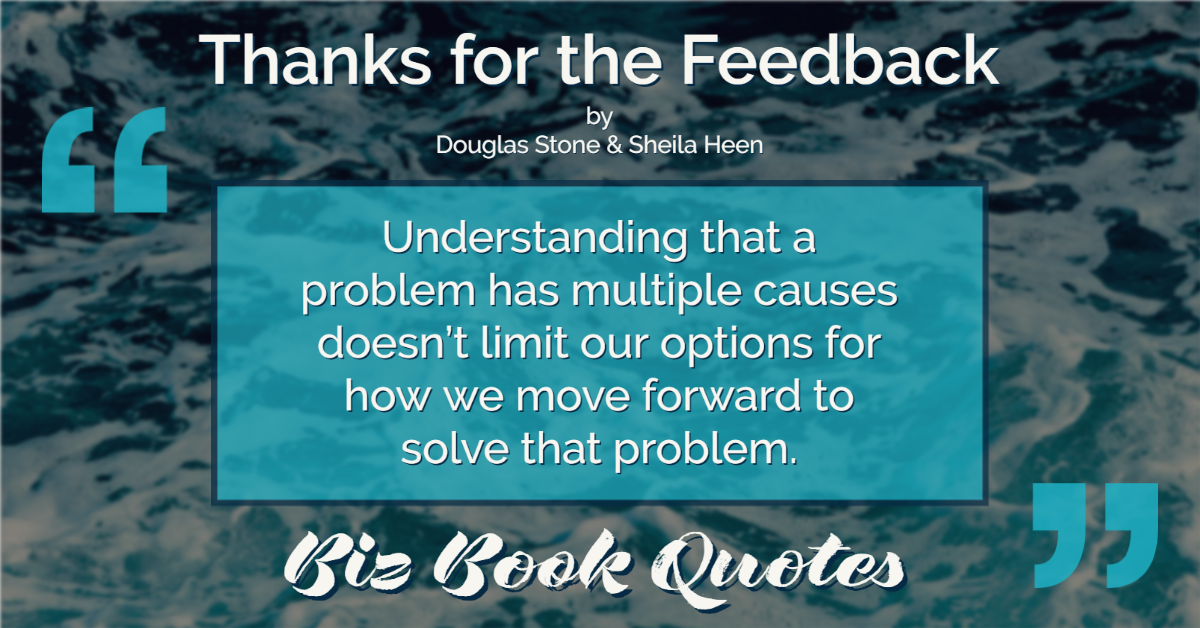
|
Thanks for the Feedback:
Understanding that a problem has multiple causes doesn’t limit our options for how we move forward to solve that problem.
|
137 |
|

|
Thanks for the Feedback:
How do we get ourselves caught up in fixes that fail? By focusing on only one player in the system and papering over the real problem with a solution that is fundamentally unsound.
|
141 |
|
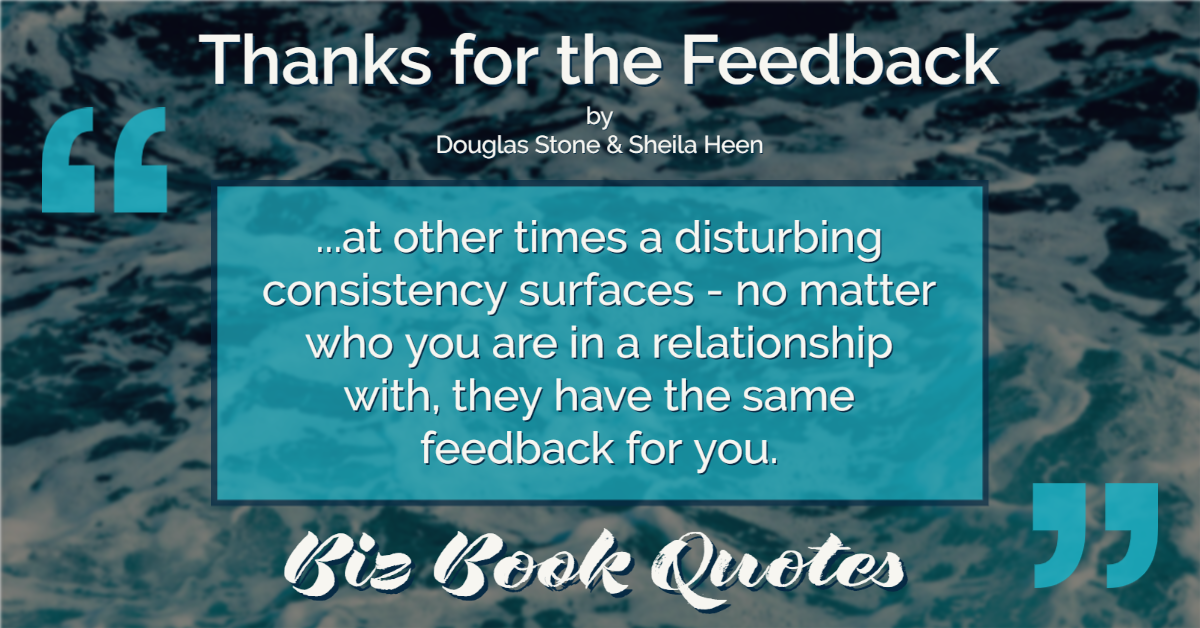
|
Thanks for the Feedback:
…at other times a disturbing consistency surfaces – no matter who you are in a relationship with, they have the same feedback for you.
|
143 |
|
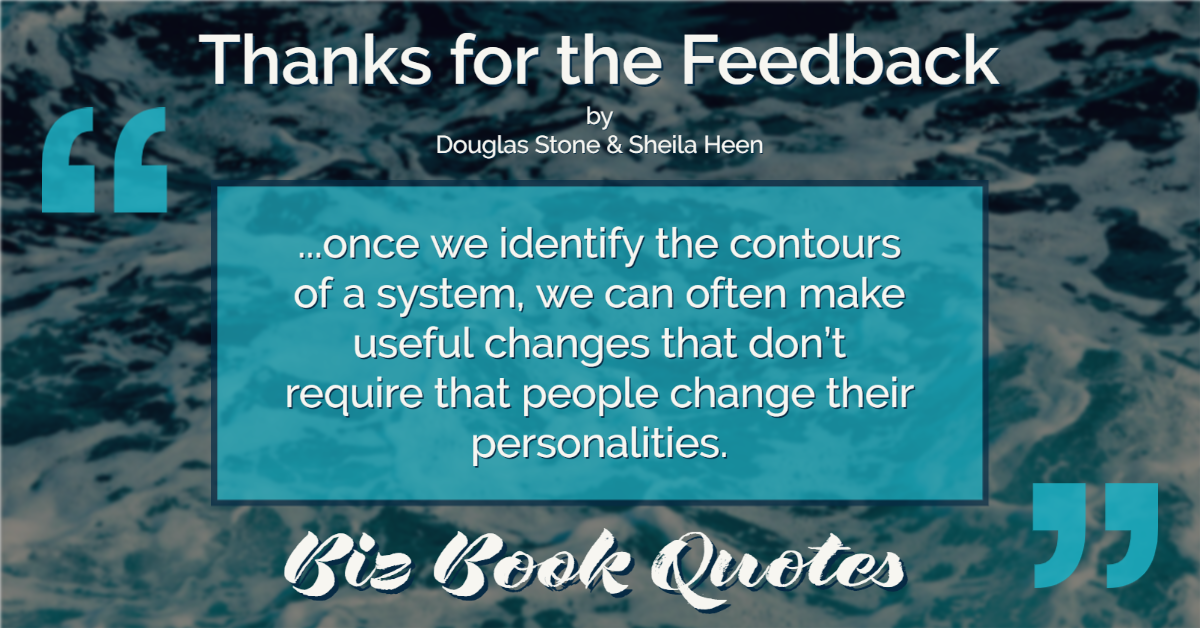
|
Thanks for the Feedback:
…once we identify the contours of a system, we can often make useful changes that don’t require that people change their personalities.
|
143 |
|
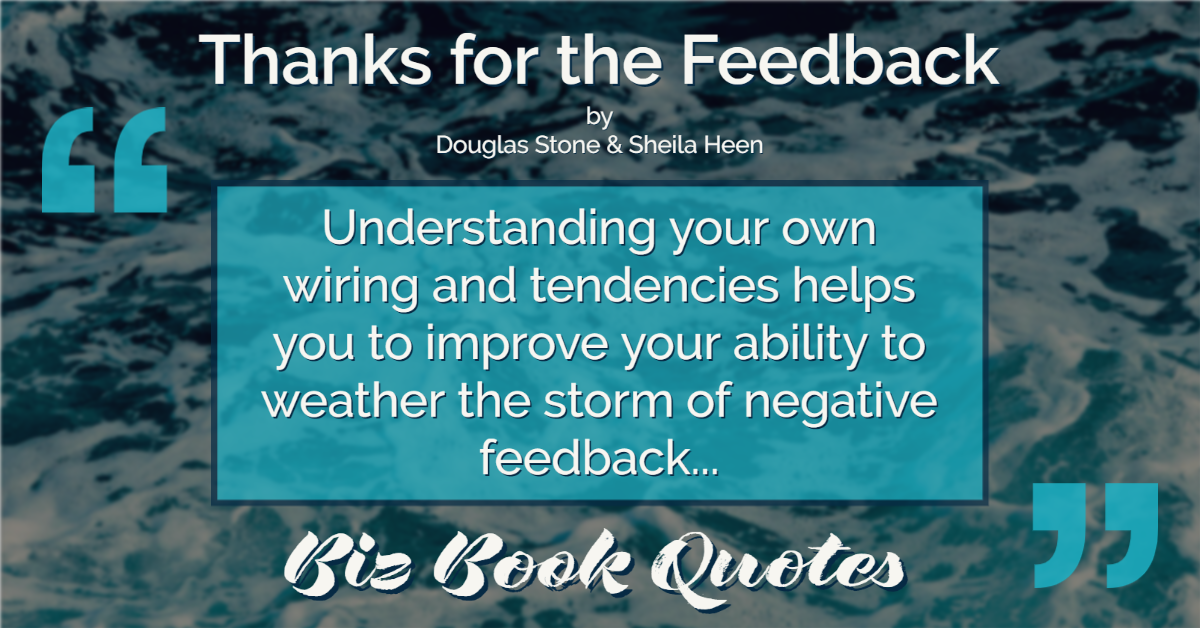
|
Thanks for the Feedback:
Understanding your own wiring and tendencies helps you to improve your ability to weather the storm of negative feedback…
|
148 |
|

|
Thanks for the Feedback:
We tend to move toward things that are pleasurable and away from things that are painful. Pleasure is a rough proxy for the healthy and safe; pain is a rough proxy for the unhealthy and dangerous.
|
149 |
|
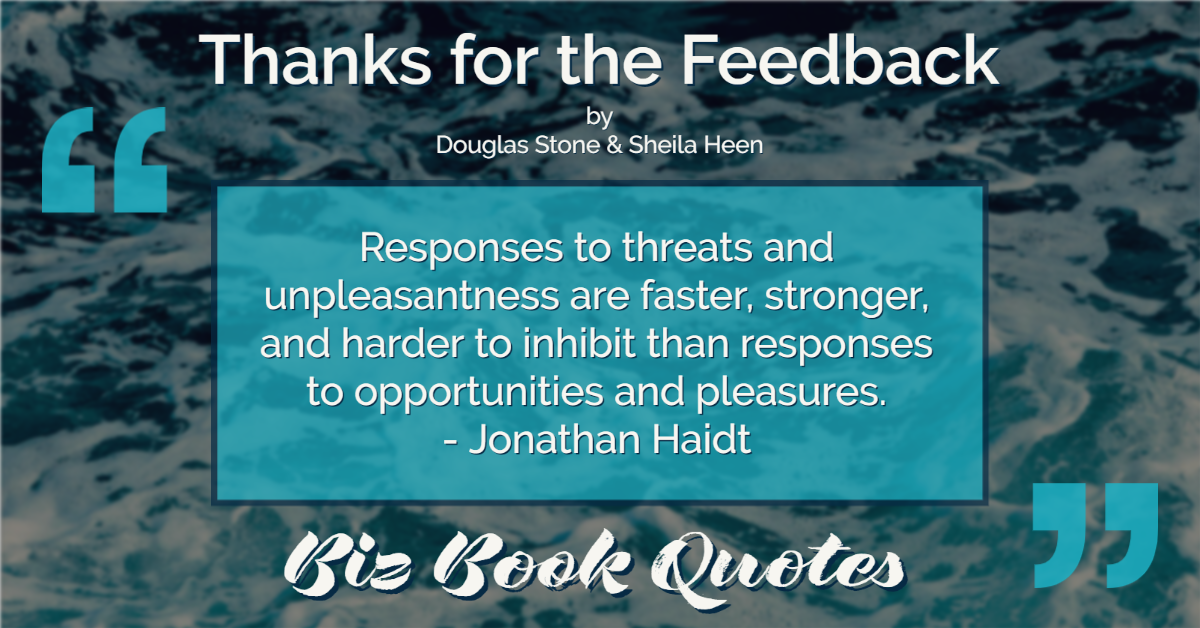
|
Thanks for the Feedback:
Responses to threats and unpleasantness are faster, stronger, and harder to inhibit than responses to opportunities and pleasures. – Jonathan Haidt
|
152 |











